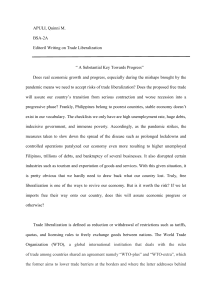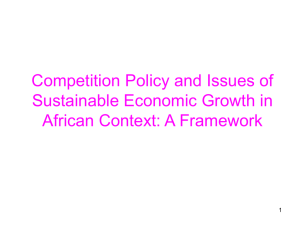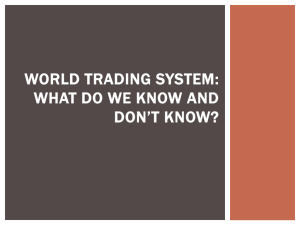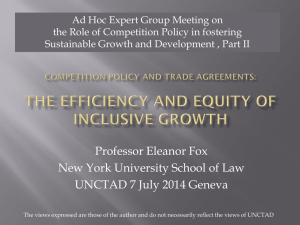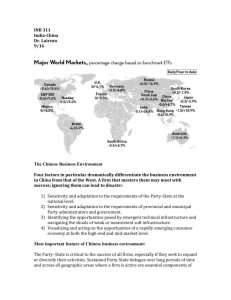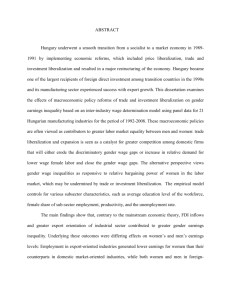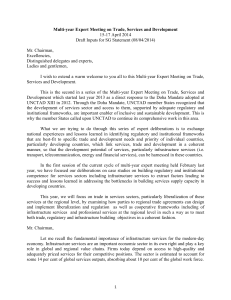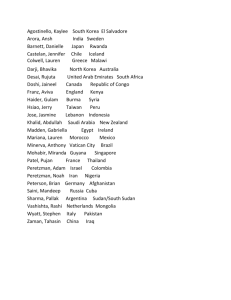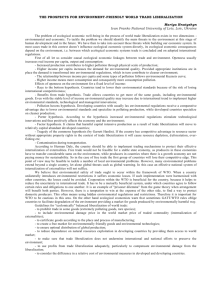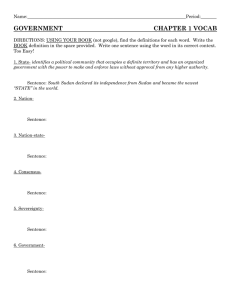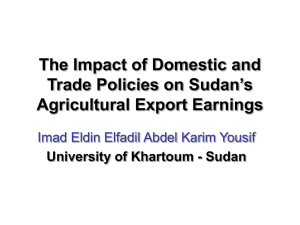Speaking Note for the Minister of Trade at... Global Services Forum MR CHAIRMAN
advertisement
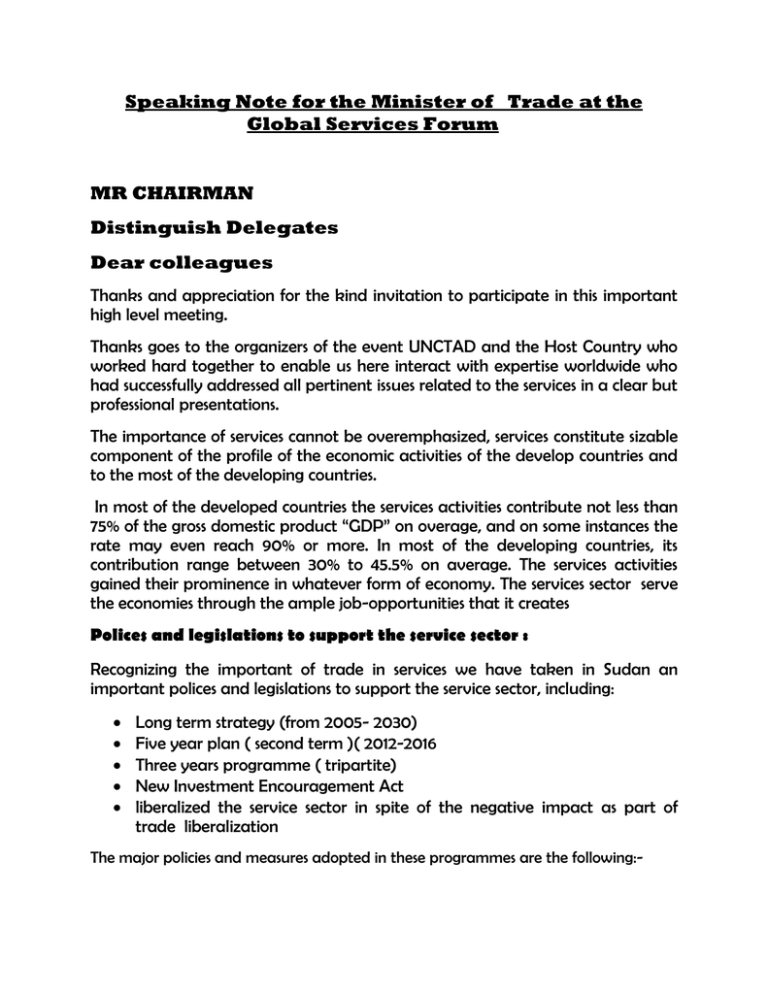
Speaking Note for the Minister of Trade at the Global Services Forum MR CHAIRMAN Distinguish Delegates Dear colleagues Thanks and appreciation for the kind invitation to participate in this important high level meeting. Thanks goes to the organizers of the event UNCTAD and the Host Country who worked hard together to enable us here interact with expertise worldwide who had successfully addressed all pertinent issues related to the services in a clear but professional presentations. The importance of services cannot be overemphasized, services constitute sizable component of the profile of the economic activities of the develop countries and to the most of the developing countries. In most of the developed countries the services activities contribute not less than 75% of the gross domestic product “GDP” on overage, and on some instances the rate may even reach 90% or more. In most of the developing countries, its contribution range between 30% to 45.5% on average. The services activities gained their prominence in whatever form of economy. The services sector serve the economies through the ample job-opportunities that it creates Polices and legislations to support the service sector : Recognizing the important of trade in services we have taken in Sudan an important polices and legislations to support the service sector, including: Long term strategy (from 2005- 2030) Five year plan ( second term )( 2012-2016 Three years programme ( tripartite) New Investment Encouragement Act liberalized the service sector in spite of the negative impact as part of trade liberalization The major policies and measures adopted in these programmes are the following:- Formulating and implementing a comprehensive restructuring programme for the government owned banks as well as private joint-venture banks. Dismantling all the controls and restrictions that discriminate between the national and foreign investors in all fields including services. Relaxing the terms and conditions and regulations. Simplifying the procedure Relaxing the terms of finance for the government entities accessing credit for social services activities as electricity, health, education, water, environment etc. Encouraging allocating the savings mobilized in the rural areas to be directed to finance the activities of those rural regions. Extending financial and technical support to the sectoral and socially oriented banks that assume socioeconomic objectives as the family bank, the Sudanese savings bank, the farmers’ bank and the agricultural bank of Sudan. foreign exchange policies aiming at exchange rate stability adopted central strategy for services liberalization Services Liberalization objectives: The Sudan services liberalization is intended to achieve the following: Boosting local and foreign investments in the services activities Creating broad – based job opportunities ie for skilled, semi skilled and unskilled workforce. Realizing efficient application and allocation of resources. Enhancing our services competitiveness through the joint – ventures and the partnerships with the foreign services providers through whom technology and modernized means and methodologies for production and management could be transferred and infused locally. Liberalization also enables producing a range of services products and accordingly also realizing prices preferences for the ultimate consumers “Communication and financial services in Sudan is a vivid example in that respect”. Encouraging Public private partnership ( PPP) to invest in communication`s infrastructure sector and to set up new policies and legislation in order to meet our liberalization Policy by emerging poverty and creating Jobs. Unleashing the government’s financial and human resources and capabilities to be directed solely to its conventional role of regulating and controlling the economic activities. Finally, services liberalization facilities modernizing, enhancing and enriching all the aspects and facets of human life of the community. Challenges and opportunities: Despite of efforts and policies exerted to support develop the service sector in Sudan , we have facing challenges and difficulties , which we are vigorously addressing , the difficulties and distortions that entail exerting internal robust effort and also entail external support and cooperation from the trading partners and from the concerned international and regional institutions and entities. Those difficulties and distortions that inhibit the services sector from thriving and developing could be enumerated in the following: Some of the services are still produced and provided by government entities that enjoy preferential treatment in the policies and the operational regulations a matter that compromises the environment for objective and fair competition. Most of the services sectors still lack the necessary competent regulatory authorities and frameworks, and also lack the adequate and congenial legislative setups. There are overlapping and contradictions in the legislations of some regulatory authorities over some services sectors, and on some cases there are services sectors that are subjected to multiple regulatory authorities while they have no any pattern of coordination and synergy among them. The need to frame clear, concrete and informed national policy for the investment in the services sector. The standards of many services products are still traditional and lack modernization and sophistication and the quality control specifications. Many of the entities providing the services in many sectors are of small size and of weak resources-bases and are mostly dominated by closed family companies. There is marked overlapping and intersections in the federal and states’ laws and regulations governing the affairs related to investment at large. There are still a wide- range of untapped investment opportunities in the services arena due to the weak promotion momentum and due to the lack of the entities that could explore and regulate them. Global value chain is rather competitive: access to Global Value Chain provide valuable opportunity to developing countries Developing countries need to create conditions to join GVC including stable political and economic domestic situations, ideal geographical location, adequate infrastructures, investment policy,certain level of educational skills and Intellectual property protection
